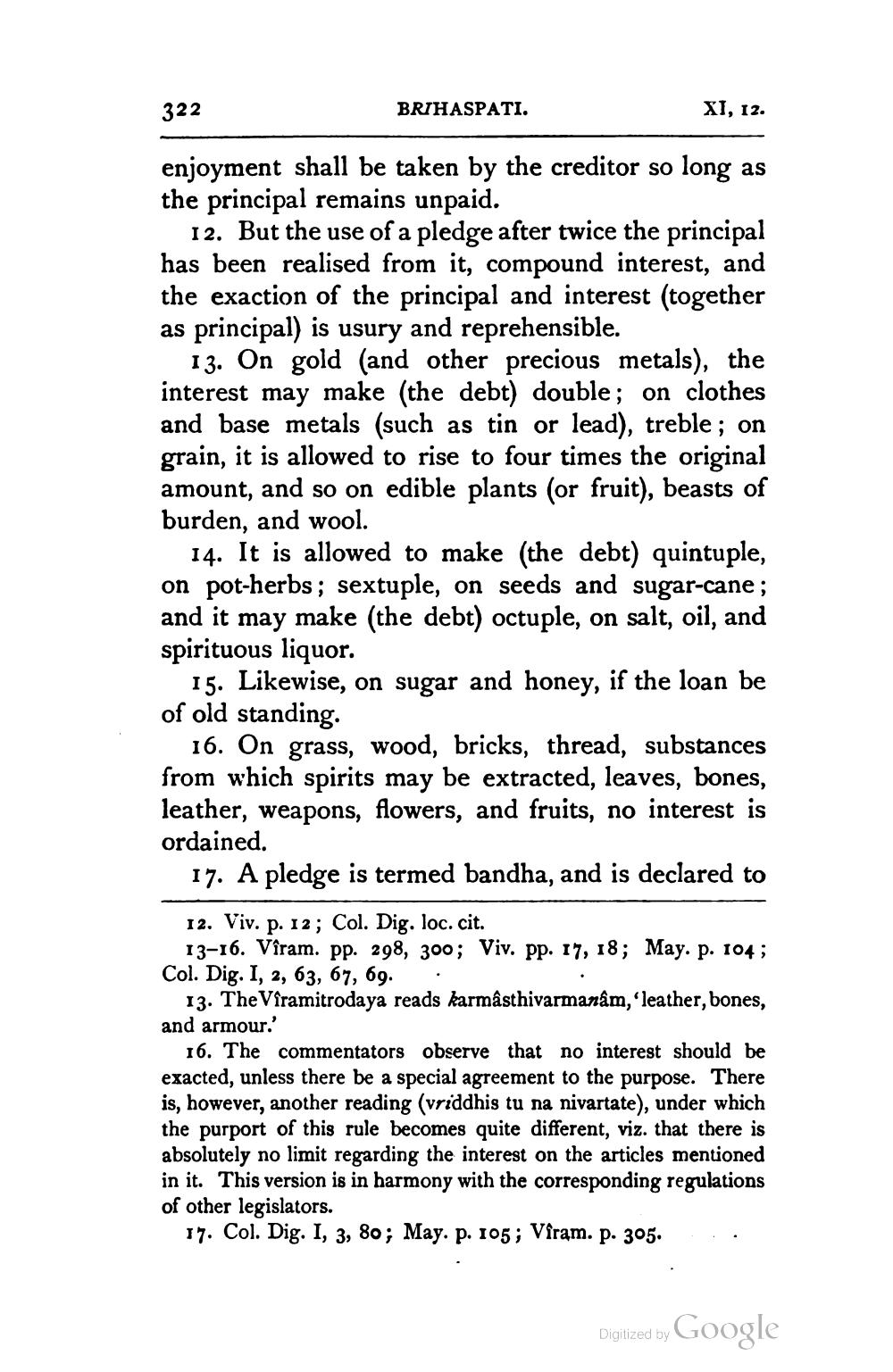________________
322
BRIHASPATI.
XI, 12.
enjoyment shall be taken by the creditor so long as the principal remains unpaid.
12. But the use of a pledge after twice the principal has been realised from it, compound interest, and the exaction of the principal and interest (together as principal) is usury and reprehensible.
13. On gold (and other precious metals), the interest may make (the debt) double; on clothes and base metals (such as tin or lead), treble; on grain, it is allowed to rise to four times the original amount, and so on edible plants (or fruit), beasts of burden, and wool.
14. It is allowed to make (the debt) quintuple, on pot-herbs; sextuple, on seeds and sugar-cane; and it may make (the debt) octuple, on salt, oil, and spirituous liquor.
15. Likewise, on sugar and honey, if the loan be of old standing.
16. On grass, wood, bricks, thread, substances from which spirits may be extracted, leaves, bones, leather, weapons, flowers, and fruits, no interest is ordained.
17. A pledge is termed bandha, and is declared to
12. Viv. p. 12; Col. Dig. loc. cit.
13–16. Vîram. pp. 298, 300; Viv. pp. 17, 18; May. p. 104; Col. Dig. I, 2, 63, 67, 69. .
13. The Viramitrodaya reads karmasthivarmanâm, leather, bones, and armour.'
16. The commentators observe that no interest should be exacted, unless there be a special agreement to the purpose. There is, however, another reading (vriddhis tu na nivartate), under which the purport of this rule becomes quite different, viz. that there is absolutely no limit regarding the interest on the articles mentioned in it. This version is in harmony with the corresponding regulations of other legislators.
17. Col. Dig. I, 3, 80; May. p. 105; Viram. p. 305. ..
Digitized by Google




